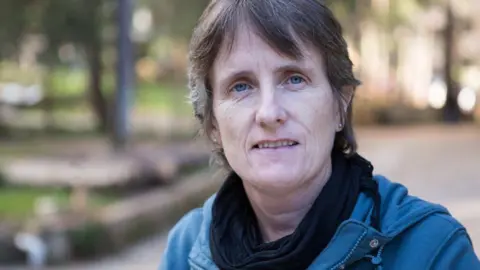Georges Abdallah, a 74-year-old Lebanese militant and a notable figure in the Palestinian liberation movement, is scheduled to be released from a French prison on Friday after serving 41 years for his connection to the murders of two diplomats in the late 1980s. Abdallah, whose case has remained a political flashpoint, is often lauded among leftist activists as a martyr for the Palestinian cause, even as his notoriety has faded from mainstream attention.
Convicted in 1987 for his involvement in the fatal shootings of an American and an Israeli diplomat, Abdallah has spent the longest time in prison linked to the Israeli-Palestinian conflict, according to his lawyer. As he returns to Beirut, he is expected to be met by supporters who have rallied for his release over the decades.
Despite being eligible for parole since 1999, his repeated requests for release were met with opposition, allegedly due to pressures from the United States and Israel on the French government. His steadfast focus on the Palestinian struggle, stated by Abdallah as essential for his mental health during his incarceration, is emblematic of his enduring commitment to a cause he believes in deeply.
Abdallah's story begins in northern Lebanon, where he was born into a Christian family. He became involved in radical politics, co-founding the Lebanese Armed Revolutionary Factions (LARF) during a turbulent period marked by civil war and foreign invasions by Israel. Following several attacks in France, including the murders of U.S. diplomat Charles Ray and Israeli diplomat Yakov Barsimantov, Abdallah's involvement with LARF caught the attention of French authorities, leading to his arrest in Lyon in 1984.
Abdallah's arrest came amid heightened tensions and public fears of terrorism associated with militants. Although he initially faced minor charges, his release was complicated by a discovery of weapons in his home shortly before a planned liberation negotiation. His trial and eventual life sentence were steeped in the context of international politics, media portrayals, and the ramifications of the broader conflict between Israel and Palestine.
After more than ten attempts for parole, including a significant pushback from notable political figures, recent judicial rulings have deemed his prolonged detention "disproportionate." Abdallah's impending release has been hailed as a moment of justice by supporters, who criticize past governmental pressure as politically motivated factors that delayed his freedom.
Prominent voices, including 2022 Nobel laureate Annie Ernaux, have come forward to advocate for his release, characterizing Abdallah's continued detention as a blemish on France's justice system. The commentary from figures across the political spectrum illuminates the complexity of his case, as it reflects broader themes of justice, nationalism, and international diplomacy within the landscape of the Israeli-Palestinian conflict.





















